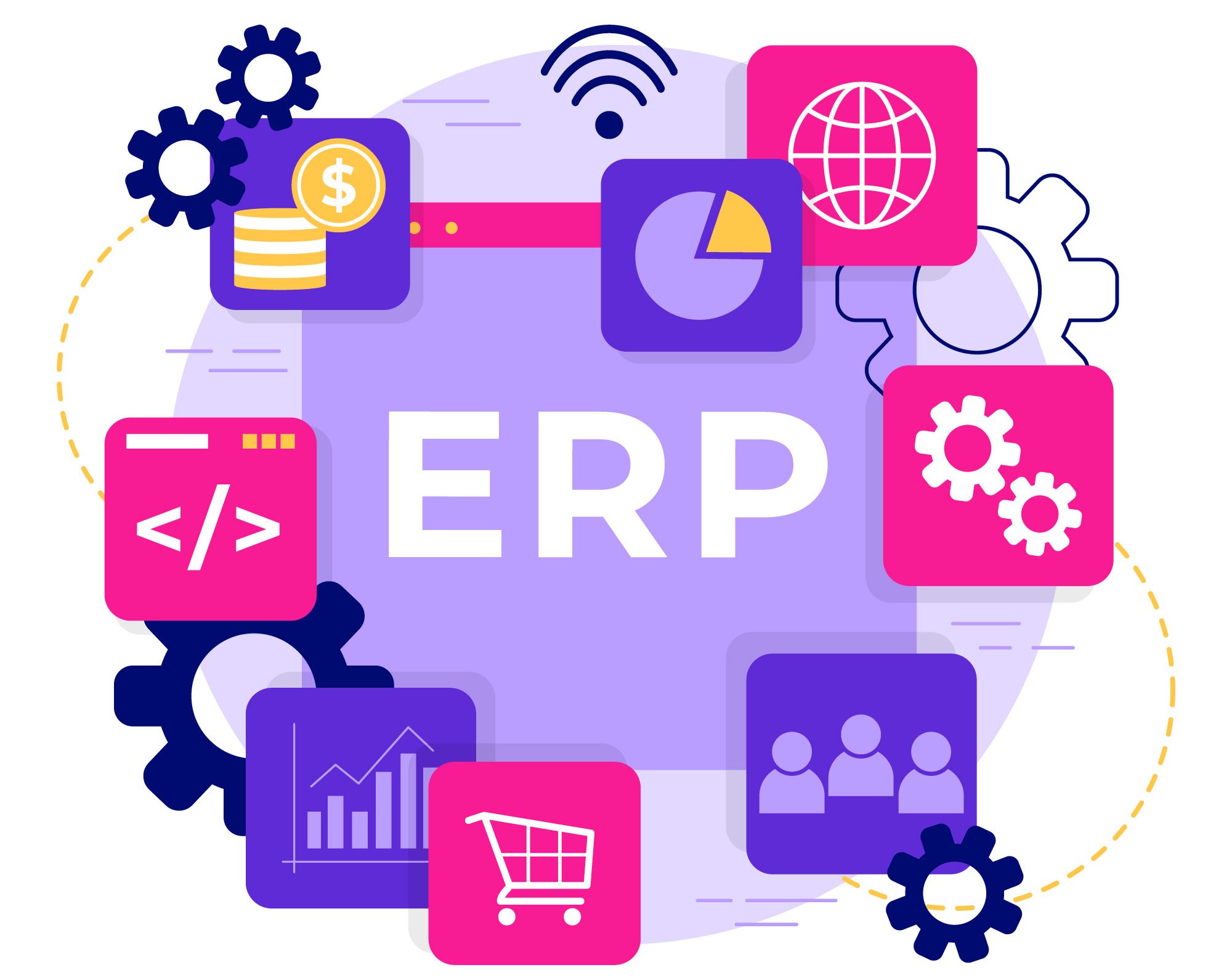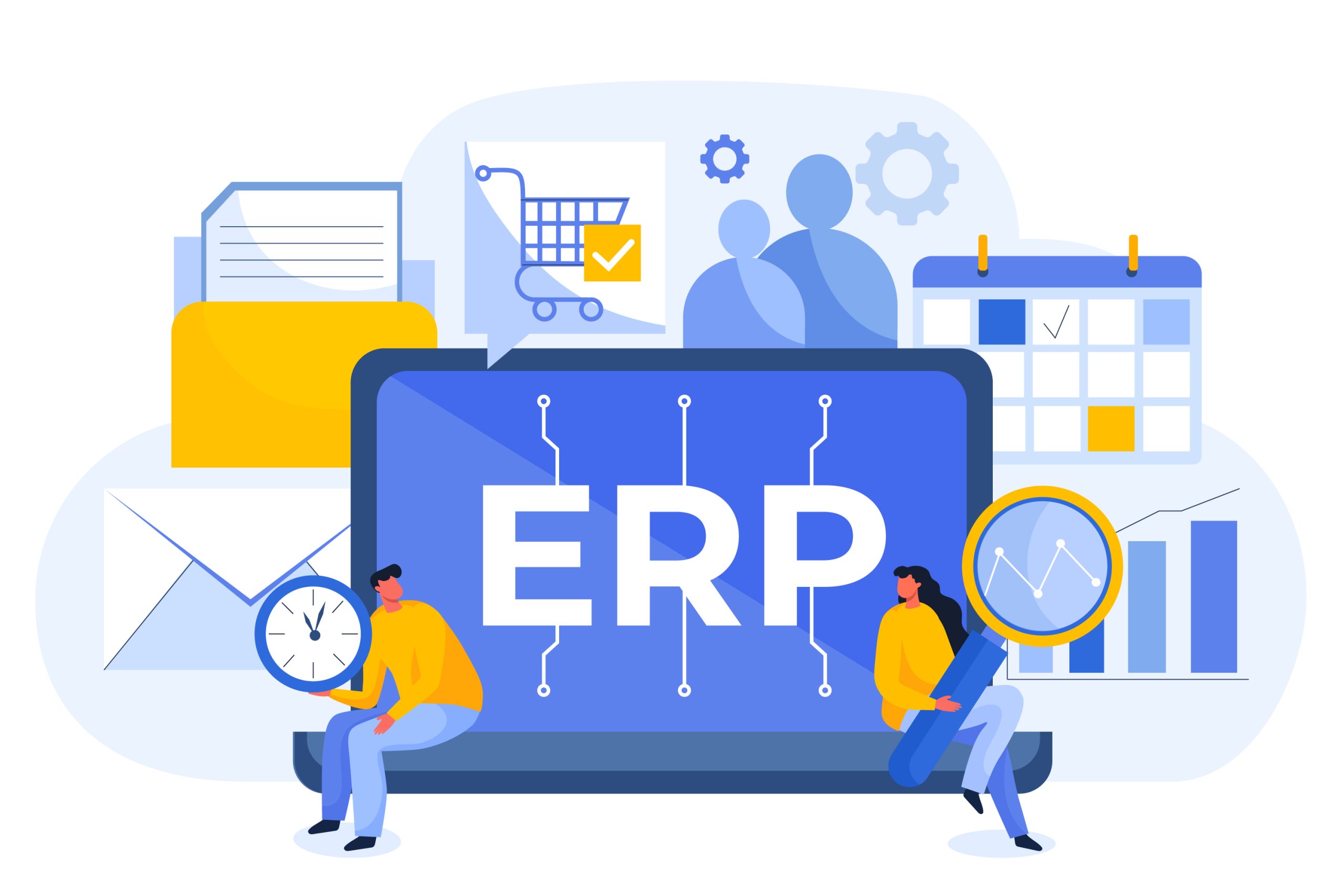In today’s business world, where competition is intense and customer demands constantly change, it is crucial for businesses to increase their productivity, optimize their processes, and reduce costs. One of the most effective ways to achieve these goals is through the use of ERP (Enterprise Resource Planning) systems. This systems enable businesses to integrate all their resources, allowing them to manage efficiently and effectively.
What is ERP?
ERP stands for “Enterprise Resource Planning”. It combines all processes across a business’s various departments (finance, human resources, production, sales, supply chain, etc.) into a single, integrated software platform. These systems automate data flow, optimize processes, and ensure harmonious collaboration between business units.
Key Components of ERP
- Financial Management: Manages financial processes such as accounting, cost accounting, budgeting, and cash flow management.
- Human Resources Management: Manages human resources processes such as personnel information, recruitment, performance evaluation, training, and payroll.
- Supply Chain Management: Manages supply chain processes such as procurement, inventory management, logistics, and distribution.
- Manufacturing Management: Manages manufacturing processes such as production planning, work order management, quality control, and maintenance.
- Sales and Marketing: Manages sales processes such as sales orders, customer relationship management (CRM), marketing campaigns, and sales analytics.

Benefits of ERP Systems to Businesses
- Increased Efficiency: Automate and integrate business processes, reducing manual tasks and data redundancy, thus enabling faster and more efficient operations.
- Reliable Data and Reporting: Consolidating all business processes into a single system provides instant and reliable access to all business data, enabling more accurate and comprehensive reporting.
- Cost Savings: Enhance efficiency and optimize processes, thereby reducing costs. Additionally, better management of inventory levels and supply chain optimization help prevent unnecessary expenditures.
- Improved Customer Services: It increases customer satisfaction by centralizing customer data and providing faster and more accurate responses to customer requests.
- Decision Support System: Analyze business data to assist managers in making strategic decisions, leading to more informed and effective decision-making.
The Future of ERP
This systems are continually evolving with technological advancements. In the future, innovations such as cloud-based ERP solutions, integration with artificial intelligence (AI) and machine learning (ML), IoT-supported processes, and mobile ERP applications will further strengthen this systems, making them more robust and effective.
- Cloud ERP: Cloud-based ERP systems reduce costs and provide flexibility, making them more accessible, especially for SMEs. These systems enable users to access this systems via the internet, enhancing data security.
- Artificial Intelligence and Machine Learning: Integrating AI and ML technologies into this systems enhances data analytics and forecasting capabilities, enabling businesses to make proactive decisions and optimize processes.
- Internet of Things (IoT): Integration of IoT devices with this systems increases real-time data collection and analysis capabilities, particularly advantageous in manufacturing and logistics processes.
- Mobile ERP: Access to ERP systems via mobile devices allows users to connect to the system from anywhere, facilitating faster business processes and creating a more flexible work environment.
ERP Consultancy: Key to Success
Successful implementation and utilization of ERP systems often require guidance from professional consultants. This consultants analyze business needs, identify suitable solutions, and ensure effective system implementation. They also provide user training and continuous support services to maximize the efficiency of this systems.
You can also take a look at our article, “Analysis and Reporting Needs of ERP Programs“
